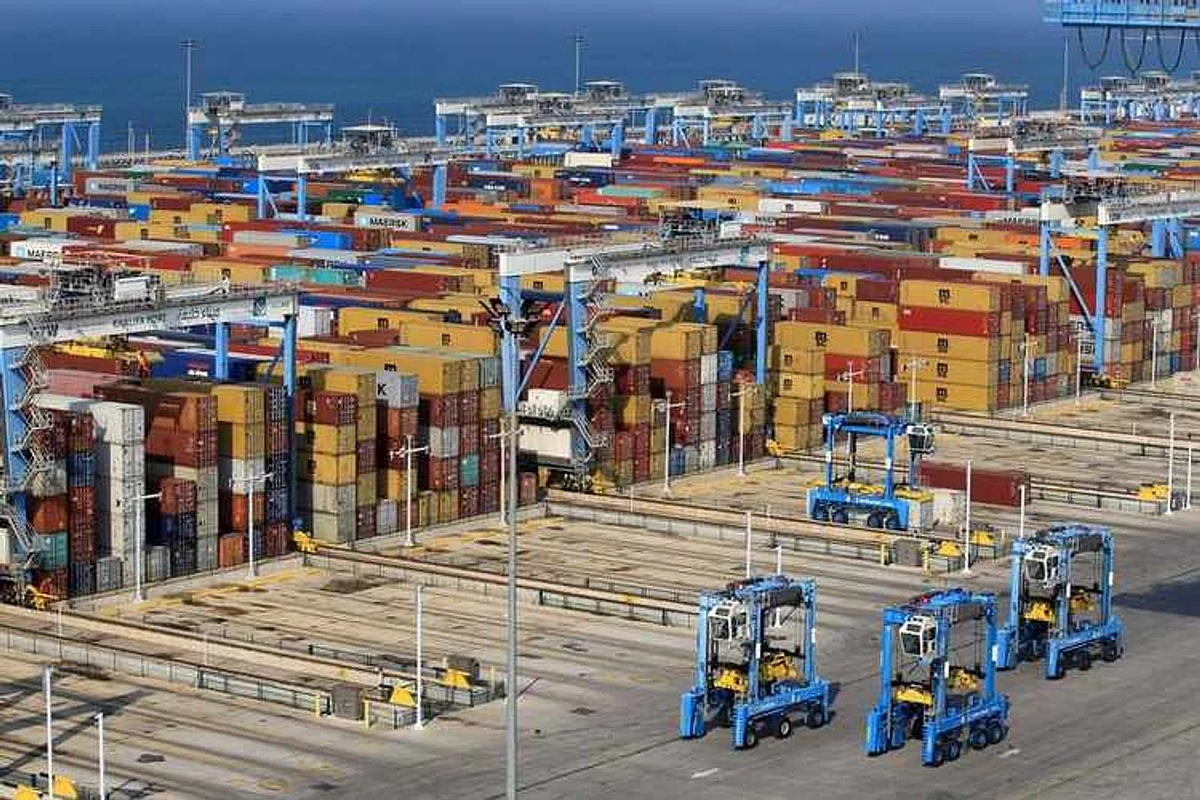
Uaeaustralia Trade Pact Set To Double Bilateral Trade To $10B
The landmark Comprehensive Economic Partnership Agreement between the UAE and Australia, which officially came into force this week, is set to more than double bilateral trade value to over $10 billion by 2032.
The deal marks a major milestone in the UAE's strategy to expand non-oil trade through a growing network of global partnerships and economic alliances.
Recommended For YouDriven by strong complementarities between the two economies, the UAE–Australia Cepa will significantly reduce trade barriers, enhance market access for goods and services, and attract new investments across key sectors such as renewable energy, infrastructure, food security, technology, and education. The pact builds on already robust trade relations that saw non-oil foreign trade between the two countries surge 33.4 per cent in the first half of 2025 to $3.03 billion.
By lowering tariffs and simplifying customs procedures, the agreement will create greater opportunities for exporters and investors while fostering collaboration between private-sector enterprises. It is also expected to drive innovation-led partnerships that support both countries' long-term sustainable growth agendas.
Dr. Thani bin Ahmed Al Zeyoudi, UAE Minister of Foreign Trade, said the entry into force of the pact would take economic engagement between the two nations to new heights.“The UAE–Australia Cepa marks a pivotal step in enhancing our partnership and will lead to new pathways for collaboration and growth. It opens doors for new investment in key sectors, supporting innovation and long-term prosperity,” he said.
The UAE already serves as Australia's leading trading partner in the Middle East and its 20th largest globally. The two nations have invested nearly $14 billion in each other's economies, with around 300 Australian companies currently operating in the UAE across a wide range of sectors including agribusiness, education, construction, logistics, and healthcare. The new trade framework is expected to accelerate this momentum by providing certainty for investors and greater predictability for cross-border business operations.
The UAE–Australia pact is also Australia's first trade agreement with a country in the Middle East and North Africa region, underscoring the UAE's growing importance as a global gateway for trade and investment. For Australia, the deal offers access to one of the world's most dynamic and diversified economies, while giving Emirati investors entry into a high-value market known for its innovation in agriculture, clean energy, and services.
The UAE's Cepa strategy has become a cornerstone of its efforts to diversify beyond hydrocarbons and build a globally competitive, innovation-driven economy. As part of its trade expansion plan, the UAE aims to hit $1 trillion in total trade by 2031 and double the size of its economy to more than $800 billion by the same year.
Analysts said the deal with Australia is one of 31 Cepas concluded so far, with others signed with India, Indonesia, Turkey, Israel, South Korea, Georgia, and Cambodia.“As the UAE–Australia Cepa takes effect, both countries are poised to capitalise on a new phase of cooperation. The deal not only promises to double trade value but also deepens the foundation for a long-term strategic partnership anchored in innovation, sustainability, and shared prosperity,” they added.
These agreements have already delivered tangible results. Bilateral non-oil trade with India, the UAE's largest partner, has surged past $50 billion within a year of the Cepa coming into force and is on track to hit $100 billion by 2030. Similar pacts with Indonesia and Turkey are driving rapid growth in re-exports and supply-chain connectivity, helping the UAE cement its status as a global trade hub linking Asia, Europe, and Africa.
The success of the Cepa programme lies in its holistic approach - facilitating not just trade in goods and services, but also investment, technology exchange, and cooperation in critical areas such as clean energy, logistics, and digital transformation. For the UAE, it represents a strategic tool to future-proof the economy and create a sustainable, diversified growth model less vulnerable to oil-price fluctuations.
For Australia, the UAE offers a strategic platform for expanding its footprint in the wider Gulf and Mena region, where demand for food, education, and renewable energy partnerships continues to grow. The agreement will enable Australian companies to benefit from the UAE's logistics infrastructure, world-class ports, and its role as a re-export hub to markets across Asia and Africa.

Legal Disclaimer:
MENAFN provides the
information “as is” without warranty of any kind. We do not accept
any responsibility or liability for the accuracy, content, images,
videos, licenses, completeness, legality, or reliability of the information
contained in this article. If you have any complaints or copyright
issues related to this article, kindly contact the provider above.
Most popular stories
Market Research

- Financewire And Tipranks Partner To Redefine Financial News Distribution
- Ethereum-Based Defi Crypto Mutuum Finance (MUTM) Reaches 50% Completion In Phase 6
- Stonehaven Circle Marks 13Th Anniversary With Hadrian Colwyn Leading Calvio Ailegacyx Innovation
- Citadel Launches Suiball, The First Sui-Native Hardware Wallet
- Motif AI Enters Phase Two Of Its Growth Cycle
- Dubai At The Centre Of Global Finance: Forex Expo 2025 Redefines The Trading Landscape




















Comments
No comment